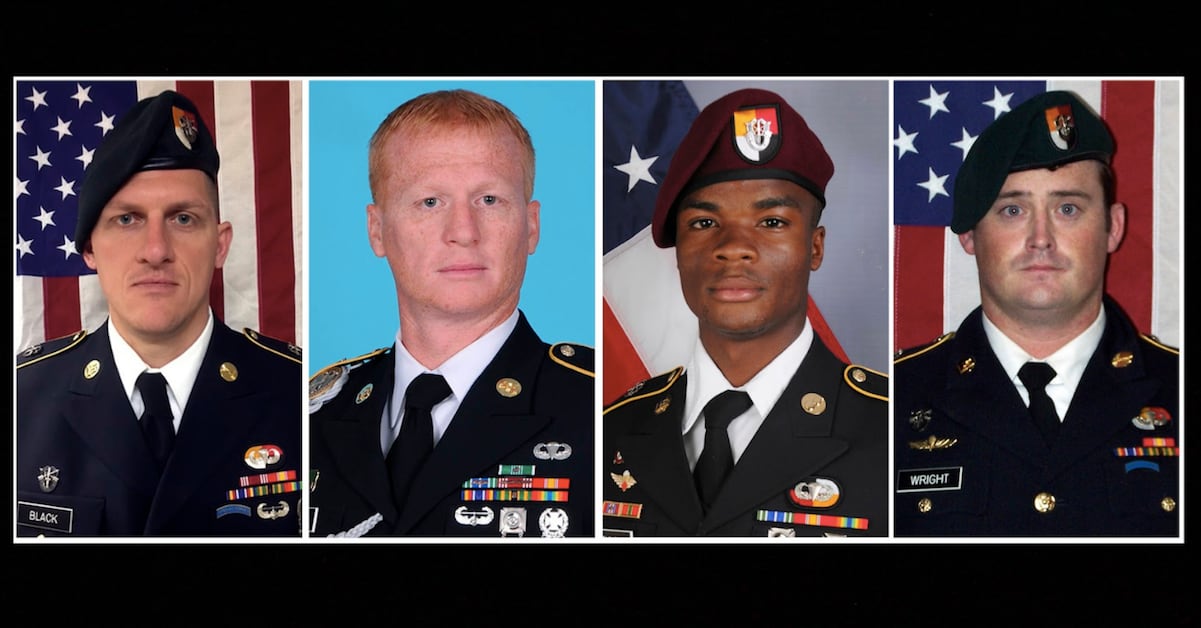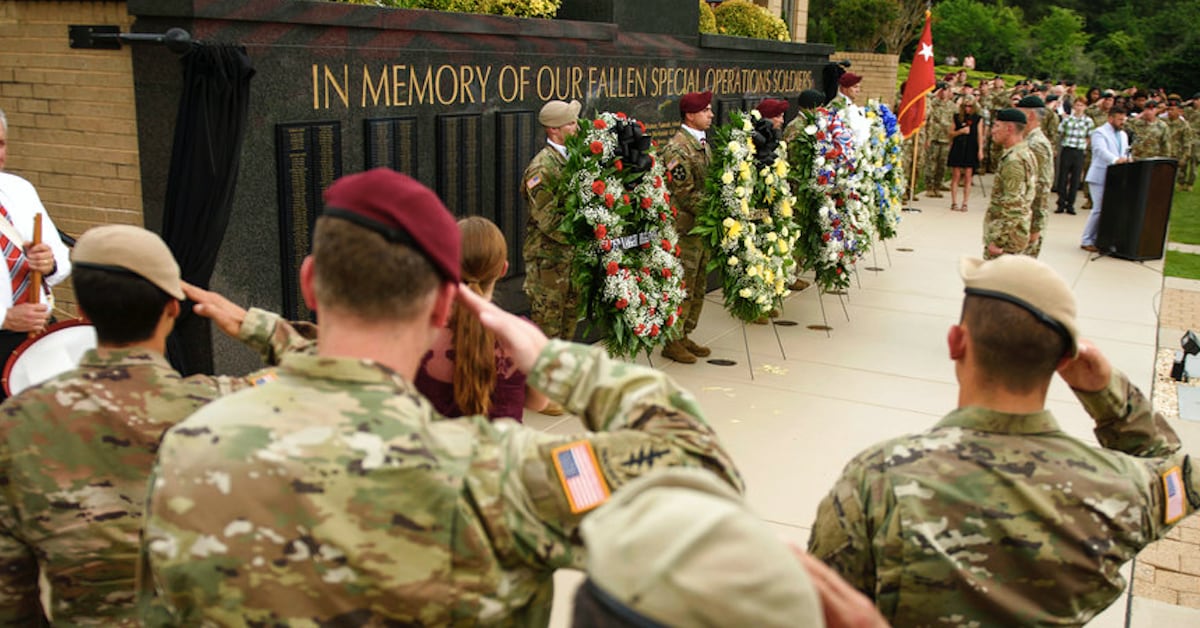The Pentagon has not yet issued final punishments relating to its investigation into the events leading up to the 2017 ambush in Niger that killed four U.S. soldiers.
However, Defense Secretary Jim Mattis was reportedly livid over the possibility that a junior officer who survived the ambush would face punishment while senior leaders would escape blame, according to the New York Times.
Navy Cmdr. Candice Tresch, a Pentagon spokeswoman, told Army Times that no final punishments have been handed out.
“The investigation is not finalized,” she said, while confirming that any punishments are pending Mattis' final review of the investigation.
“[Mattis'] review is ongoing as he requested an update to the original reports submitted by U.S. Africa Command, U.S. Special Operations Command, the Department of the Army and the Under Secretary of Defense for Personnel & Readiness,” Tresch said. “Once those are submitted, reviewed and finalized, we will know if there is additional information to share.”
An initial DoD investigation, which began in the wake of the October 2017 ambush, was partially released in May.
An unclassified eight-page summary of the 6,300-page investigation found widespread issues across the U.S. counterterrorism mission in Africa, including problems with equipment, authorities for approving missions and the integration of special operations teams with their local partners.
The report focused in particular on the actions of junior officers leading up to the mission. It said that the team commander and the company commander “inaccurately characterized the nature of the mission in the [concept of operations].”
The Times reported in November that six individuals were facing punishment for their actions leading up to the ambush, only one of whom was a senior officer.
RELATED

Air Force Maj. Gen. Marcus Hicks, who was the commander of all special operations troops in Africa, the leader of the Army Green Beret team that was ambushed, and four others in the team’s chain of command were going to receive letters of reprimand, according to The Times' November report.
The slow pace of accountability and lack of more senior officers facing punishment reportedly angered Mattis during a video conference at the Pentagon last month, The Times reported.
Days after the video conference, at least one senior officer who had escaped punishment was told he would be reprimanded, and another senior officer’s actions were under renewed scrutiny, officials told the The Times.
Capt. Michael Perozeni, the junior officer who led the mission, will no longer receive a letter of reprimand, The Times reported.

Perozeni received much of the blame early on in the investigation after it was found that the CONOP submitted for his Green Beret team, known as Team OUALLAM, did not accurately depict that they were attempting a capture-or-kill mission against Dondou Cheffou, a militant aligned with the Islamic State in the Greater Sahara, or ISIS-GS.
The commander of the Advanced Operations Base from where Team OUALLAM launched its mission then approved the CONOP based on an incorrect belief that he had the authority to do so, according to the eight-page summary of the investigation.
“At the time of Team OUALLAM’s departure on the initial mission, no command higher than the AOB was aware that the mission sought to find/fix and, if possible, capture a key member of ISIS-GS,” the summary reads. “The acting AOB commander (a captain) was the most senior officer aware of the true nature of the mission."
However, problems with that narrative of events have emerged.
U.S. Africa Command initially blamed Perozeni and the acting AOB commander for mischaracterizing the mission as a trip to meet with tribal leaders, not a counterterrorism raid.
Before the team began that day-long mission, two officials told The Times in March, was when Perozeni received the order to provide backup to a capture-or-kill raid against Cheffou, led by a helicopter-borne assault force flying out of the town of Arlit.
In the classified version of the investigation, Perozeni allegedly warned that his team did not have the equipment or intelligence needed to carry out a capture-or-kill raid on its own, the two officials told The Times. But he did not resist orders to provide backup, the officials said.
After the helicopter assault force backed out due to weather issues, a battalion commander based in Chad, Lt. Col. David Painter, allegedly ordered the team to continue, according to The Times' latest report.
It is unclear whether Painter knew the helicopter team had canceled.
The initial reprimands that drew Mattis' ire singled out Perozeni, but passed over Painter, as well as Col. Brad Moses, the commander of 3rd Special Forces Group, which was in West Africa at that time.
During the Pentagon video conference last month, it was reportedly determined that Painter would receive a letter of reprimand. Moses has not yet been reprimanded, but his actions are under greater scrutiny.
The reprimands are not finalized, and the punishments are still to be determined, but Army Gen. Tony Thomas, leader of Special Operations Command, has reportedly decided to oversee awards for the soldiers who died in the ambush.
Thomas recently flew to Fort Bragg, N.C., the home of 3rd Special Forces Group, to ensure that the award citations were being prepared, The Times reported. There, Thomas reviewed helmet camera footage from a soldier killed in the ambush, as well as statements from surviving soldiers.
Thomas reportedly asked whether Staff Sgt. Dustin Wright, who was killed trying to rescue a wounded comrade and eventually died, was eligible for the Medal of Honor.
“We remain committed to learning all we can from this ambush as a way to honor the sacrifice and commitment of our fallen soldiers," Tresch told Army Times.
Kyle Rempfer was an editor and reporter who has covered combat operations, criminal cases, foreign military assistance and training accidents. Before entering journalism, Kyle served in U.S. Air Force Special Tactics and deployed in 2014 to Paktika Province, Afghanistan, and Baghdad, Iraq.




